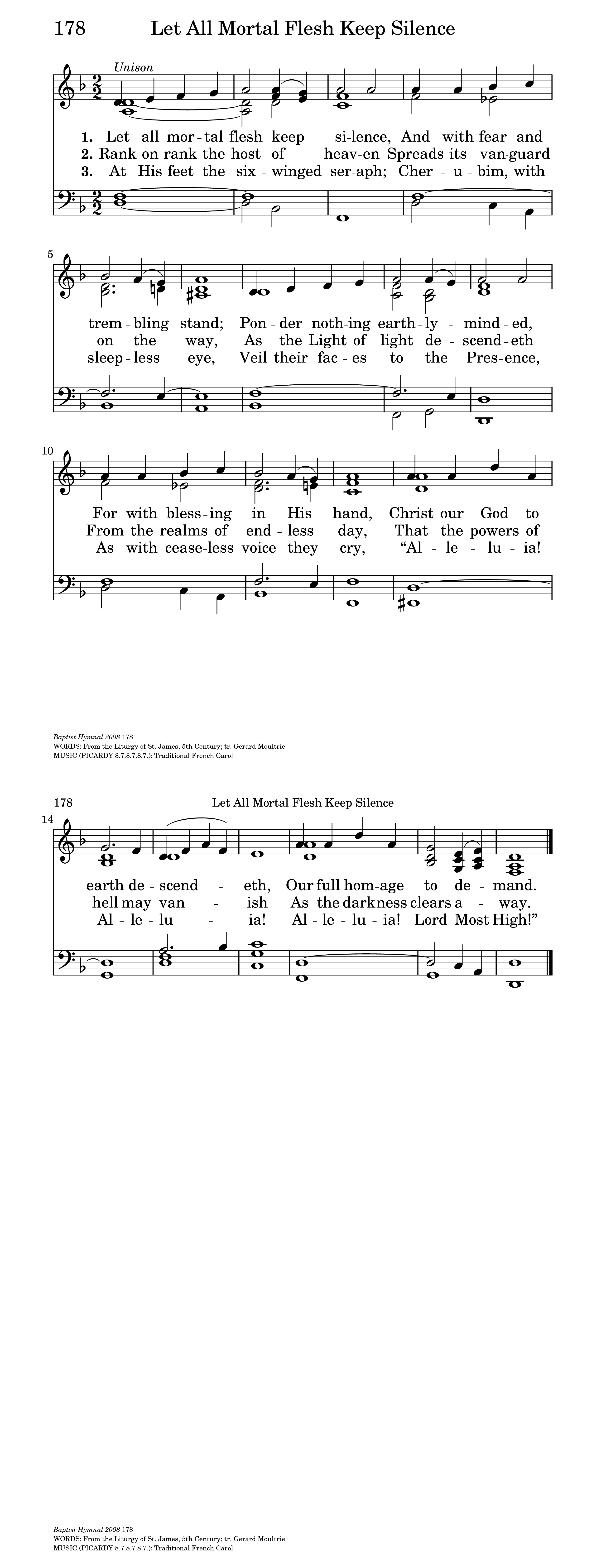1. Let all mortal flesh keep silence,
and with fear and trembling stand;
ponder nothing earthly minded,
for, with blessing in His hand,
Christ our God to earth descendeth,
our full homage to demand.
2. King of kings, yet born of Mary,
as of old on earth He stood,
Lord of lords, in human vesture,
in the body and the blood.
He will give to all the faithful
His own self for heav'nly food.
3. Rank on rank the host of heaven
spreads its vanguard on the way,
as the Light of light descendeth
from the realms of endless day,
that the pow'rs of hell may vanish
as the darkness clears away.
4. At His feet the six-winged seraph,
cherubim with sleepless eye,
veil their faces to the Presence,
as with ceaseless voice they cry,
“Alleluia, alleluia,
alleluia, Lord Most High!”
Scripture; 1 Samuel 3:9-10; Psalm 2:11;
Isaiah 9:1-3;
Habakkuk 2:14-20The hymn "Let All Mortal Flesh Keep Silence" is based on an ancient liturgical text from the Liturgy of St. James, which dates back to the 4th century. However, the English translation that is widely known today was written by Gerard Moultrie, an Anglican priest and hymn writer. Moultrie published his translation of the hymn in 1864, adapting the original ancient text into English.
The music most commonly associated with the hymn is the Picardy tune, a French folk melody, which was harmonized by David Evans in the early 20th century.
So, to clarify:
- The original text is ancient and is part of the Liturgy of St. James, attributed to early Christian liturgical traditions.



No comments:
Post a Comment